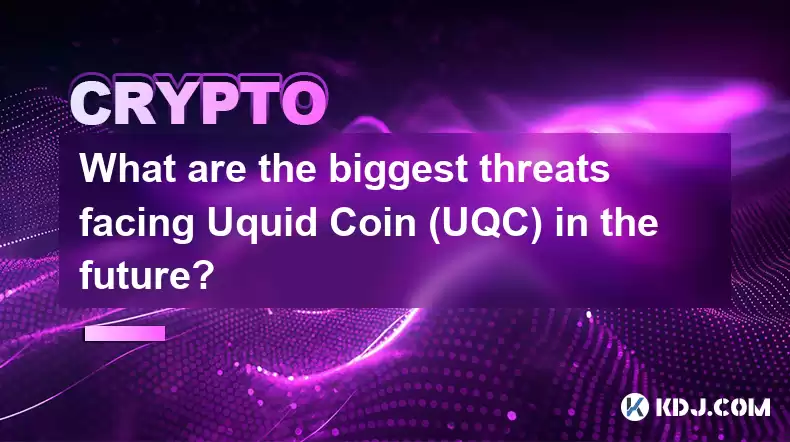-
 Bitcoin
Bitcoin $114200
0.00% -
 Ethereum
Ethereum $3637
0.56% -
 XRP
XRP $2.950
-2.01% -
 Tether USDt
Tether USDt $0.9999
0.02% -
 BNB
BNB $761.0
0.55% -
 Solana
Solana $164.1
-1.38% -
 USDC
USDC $0.9999
0.02% -
 TRON
TRON $0.3332
0.36% -
 Dogecoin
Dogecoin $0.2012
-0.52% -
 Cardano
Cardano $0.7261
-1.41% -
 Hyperliquid
Hyperliquid $37.62
-2.13% -
 Stellar
Stellar $0.3930
-2.65% -
 Sui
Sui $3.441
-0.16% -
 Bitcoin Cash
Bitcoin Cash $563.8
0.70% -
 Chainlink
Chainlink $16.50
0.09% -
 Hedera
Hedera $0.2424
-0.14% -
 Ethena USDe
Ethena USDe $1.001
0.01% -
 Avalanche
Avalanche $22.20
0.00% -
 Litecoin
Litecoin $118.0
-2.48% -
 UNUS SED LEO
UNUS SED LEO $8.991
0.12% -
 Toncoin
Toncoin $3.195
-3.87% -
 Shiba Inu
Shiba Inu $0.00001217
0.12% -
 Uniswap
Uniswap $9.674
-0.21% -
 Polkadot
Polkadot $3.633
1.00% -
 Monero
Monero $295.3
-0.82% -
 Dai
Dai $0.9999
0.00% -
 Bitget Token
Bitget Token $4.321
-0.41% -
 Cronos
Cronos $0.1392
0.73% -
 Pepe
Pepe $0.00001027
-0.89% -
 Aave
Aave $258.5
0.32%
What are the biggest threats facing Uquid Coin (UQC) in the future?
UQC faces challenges from market volatility, regulatory uncertainties, competition, technological limitations, and limited mainstream adoption, impacting its value and adoption potential.
Jan 04, 2025 at 12:50 am

Key Points
- Market volatility and price fluctuations
- Competition from established and emerging cryptocurrencies
- Regulatory uncertainties and evolving legal frameworks
- Technological limitations and security risks
- Lack of widespread adoption and mainstream acceptance
Detailed Discussion
1. Market Volatility and Price Fluctuations
UQC, like other cryptocurrencies, is subject to significant market volatility, driven by various factors such as macroeconomic conditions, news events, and investor sentiment. Price swings can be both positive and negative, making it difficult for investors to predict and manage their investments.
2. Competition from Established and Emerging Cryptocurrencies
The cryptocurrency market is highly competitive, with numerous established and emerging coins vying for market share. Bitcoin, Ethereum, Binance Coin, and Tether are just a handful of the well-known cryptocurrencies that pose significant competition to UQC. New cryptocurrencies are also constantly emerging, each claiming to offer unique features or advantages, further fragmenting the market.
3. Regulatory Uncertainties and Evolving Legal Frameworks
The regulatory landscape surrounding cryptocurrencies is still evolving, with governments around the world taking different approaches to regulating the industry. Uncertainties and inconsistencies in regulations can hinder the growth and adoption of cryptocurrencies, including UQC. Moreover, regulatory crackdowns or unfavorable legal changes can have a detrimental impact on the value and liquidity of UQC.
4. Technological Limitations and Security Risks
UQC, like other cryptocurrencies, operates on a decentralized blockchain network, which introduces certain technological limitations. Scalability issues, slow transaction speeds, and high transaction fees can affect the usability and adoption of UQC. Additionally, blockchain networks are susceptible to security risks, including hacking attacks and phishing scams, which can compromise users' funds and erode trust in the ecosystem.
5. Lack of Widespread Adoption and Mainstream Acceptance
Despite the growing popularity of cryptocurrencies, widespread adoption and mainstream acceptance are still limited. A lack of understanding and negative perceptions surrounding cryptocurrencies, as well as a lack of merchant acceptance and accessibility, hinder the adoption of UQC. Moreover, volatility and security concerns can deter potential users from embracing UQC and other cryptocurrencies.
FAQs
Q: What are the strengths of UQC?
A: UQC is a decentralized peer-to-peer currency that offers several advantages over traditional fiat currencies. It is based on a secure blockchain network, provides anonymity and privacy to users, and allows for fast and low-cost transactions.
Q: How does UQC compare to other cryptocurrencies?
A: UQC is a relatively new cryptocurrency and has a smaller market capitalization compared to established coins like Bitcoin and Ethereum. However, it offers unique features, such as its anonymity and focus on privacy, which may appeal to certain users.
Q: What is the long-term outlook for UQC?
A: The long-term outlook for UQC is difficult to predict, as it depends on various factors, including the overall cryptocurrency market, regulatory developments, technological advancements, and wider adoption.
Disclaimer:info@kdj.com
The information provided is not trading advice. kdj.com does not assume any responsibility for any investments made based on the information provided in this article. Cryptocurrencies are highly volatile and it is highly recommended that you invest with caution after thorough research!
If you believe that the content used on this website infringes your copyright, please contact us immediately (info@kdj.com) and we will delete it promptly.
- EIP-7999: Ethereum's Fee Fixer-Upper – Is This the End of Gas Fee Nightmares?
- 2025-08-06 15:10:22
- Ethereum Withdrawals, Institutional Confidence, and a Potential Price Rally: Decoding the Signals
- 2025-08-06 15:30:12
- Ethereum Reform: EIP-7999 and the Quest for Fee-less Crypto?
- 2025-08-06 15:30:12
- XRP, MAGACOIN FINANCE, and Ethereum: What's Hot in the Crypto World?
- 2025-08-06 15:35:12
- Unilabs, Ethereum, and Dogecoin: Navigating the Crypto Landscape
- 2025-08-06 15:35:12
- ETH, BTC, XRP: Navigating Crypto Volatility and Spotting the Next Big Thing
- 2025-08-06 15:40:11
Related knowledge

What is Chainlink (LINK)?
Jul 22,2025 at 02:14am
Understanding Chainlink (LINK): The Decentralized Oracle NetworkChainlink is a decentralized oracle network designed to bridge the gap between blockch...

What is Avalanche (AVAX)?
Jul 22,2025 at 08:35am
What is Avalanche (AVAX)?Avalanche (AVAX) is a decentralized, open-source blockchain platform designed to support high-performance decentralized appli...

What is Polkadot (DOT)?
Jul 19,2025 at 06:35pm
Understanding the Basics of Polkadot (DOT)Polkadot (DOT) is a multi-chain network protocol designed to enable different blockchains to transfer messag...

What is Litecoin (LTC)?
Jul 23,2025 at 11:35am
Overview of Litecoin (LTC)Litecoin (LTC) is a peer-to-peer cryptocurrency that was created in 2011 by Charlie Lee, a former Google engineer. It is oft...

What is Monero (XMR)?
Jul 21,2025 at 10:07am
What is Monero (XMR)?Monero (XMR) is a decentralized cryptocurrency designed to provide enhanced privacy and anonymity for its users. Unlike Bitcoin a...

How to add indicators to Ethereum chart on TradingView?
Jul 19,2025 at 07:15am
What Is an Ethereum Chart on TradingView?The Ethereum chart on TradingView is a visual representation of the price movement of Ethereum (ETH) over a s...

What is Chainlink (LINK)?
Jul 22,2025 at 02:14am
Understanding Chainlink (LINK): The Decentralized Oracle NetworkChainlink is a decentralized oracle network designed to bridge the gap between blockch...

What is Avalanche (AVAX)?
Jul 22,2025 at 08:35am
What is Avalanche (AVAX)?Avalanche (AVAX) is a decentralized, open-source blockchain platform designed to support high-performance decentralized appli...

What is Polkadot (DOT)?
Jul 19,2025 at 06:35pm
Understanding the Basics of Polkadot (DOT)Polkadot (DOT) is a multi-chain network protocol designed to enable different blockchains to transfer messag...

What is Litecoin (LTC)?
Jul 23,2025 at 11:35am
Overview of Litecoin (LTC)Litecoin (LTC) is a peer-to-peer cryptocurrency that was created in 2011 by Charlie Lee, a former Google engineer. It is oft...

What is Monero (XMR)?
Jul 21,2025 at 10:07am
What is Monero (XMR)?Monero (XMR) is a decentralized cryptocurrency designed to provide enhanced privacy and anonymity for its users. Unlike Bitcoin a...

How to add indicators to Ethereum chart on TradingView?
Jul 19,2025 at 07:15am
What Is an Ethereum Chart on TradingView?The Ethereum chart on TradingView is a visual representation of the price movement of Ethereum (ETH) over a s...
See all articles

























































































